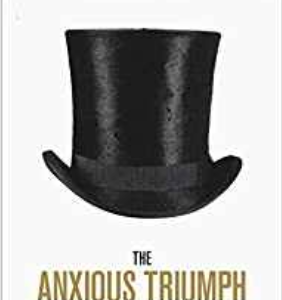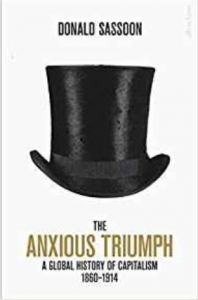
Morality regime of the pre-capitalist world

Capitalism is under fire and corporate bosses start their pronouncements with a confession of sin that has compulsively expatiate on the broken system. Capitalism is like aristocracy and requires a spin doctor for selling.
Today’s many diverse owners of capital might be real parasites who do not toil and we are all guilty of capitalism, beneficiaries of its fruits and complicit in its flaws.
Donald Sassoon, a professor of European history at Queens Mary College London, has written cultural and political history and produced an accessible and genuinely global history of the transformative but wobbly character of capitalist occurrence.
Sassoon tells the story of how capitalism established links and connections that made for a staggering general increase in prosperity and welfare.
Sassoon’s discussion of the morality regime of the pre-capitalist world where even the rich and famously mostly did not live long in the 19th century, and it was not just tuberculosis that killed them. Compose Vincenzo Bellini died at 33 with intestinal disorder, while typhoid claimed both Franz Schubert (31) and poet Gerard Manley Hopkins (44).
There was medical progress and customer satisfaction as new products were sold in new ways that simply make life better. This is a tale of success from the invention of department stores ( Paris 1838) and the pricetag ( Philadelphia, 1861) to the cash register (1879).
Sasoon give convincing arguments for the relationship of capitalism with brutal western imperialism, the European quest for empire driven by an economic imperative to create the basis of capitalism. Large European countries turned to overseas territorial expansion when they believed their own version of capitalism was floundering or falling, even Britain did this in the late Victorian Climacteric, when the US and Germany were overtaking it, France in the aftermath of the military defeat of the Franco-Purssian war.
State could not and did not understand competition and how it worked dynamically.
Capitalism sometimes relies on spinning and mis-selling.
Globalisation and dominance of capitalism as a system began in the 1860s, when, in different forms and supported by different political forces, states all over the world developed in their modern political frameworks: the unifications of Italy and Germany, the establishment of a republic in France, the elimination of slavery in the American South, the Meiji Restoration in Japan, the emancipation of the serfs in Tsarist Russia.
Sassoon writes “The chronic instability is the foundation of its advance, not a fault in the system or an incidental by-product”. This constant instability and churn which produces the anxious triumph of his title. To colonial adventures to develop a welfare state, to intervene in the market economy, and to protect it from foreign competition, Capitalists needed a state to discipline them, to nurture them, and to sacrifice a few to save the rest a sate overseeing the war of all against all.
The Anxious Triumph: A Global History of Capitalism 1860-1914 by Donald Sassoon, Allen Lane £30, 800 pages.
